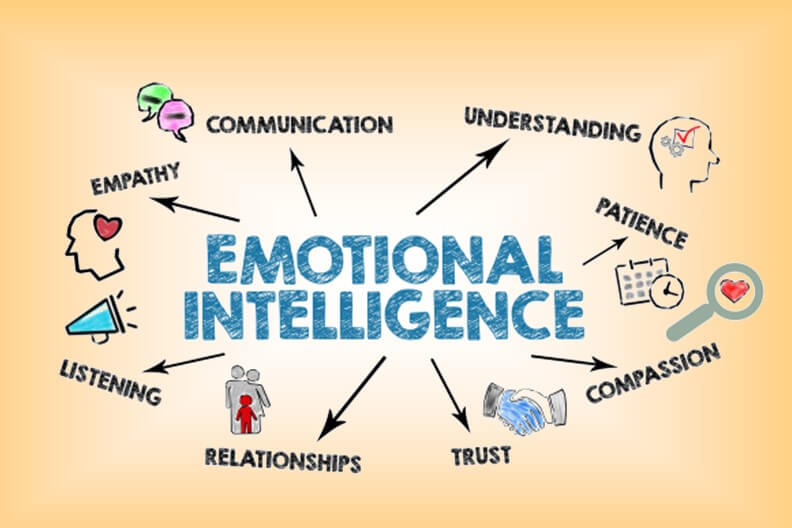One hundred percent of senior leaders at a Fortune 500 consumer products company experienced notable gains in their performance, including significant bottom-line improvements for their areas of responsibility. (1) What was behind this beneficial turn of events?
These leaders all completed an emotional intelligence training program.
Emotional intelligence (EQ) refers to the ability to recognize, manage, and express one’s own emotions effectively. It also includes the ability to influence the emotions of other people. Those who have a high EQ tend to display the following characteristics:
- Self-regulation
- Self-awareness
- Motivation
- Social skills
- Empathy
Communication is Key
Reading signals expressed in other people’s emotions is critical for achieving career success. It may be a cliché, but it’s true: people want to work with those they like. A strong EQ empowers leaders to communicate their vision effectively, influence colleagues, and establish rapport with stakeholders.
All great leaders are great communicators; it is a defining characteristic of the role. EQ dictates how well a person can communicate with others. This communication includes how they share their vision and strategies, as well as how easily others are motivated to buy into them.
Communication is, quite simply, the cornerstone of leadership. Every part of the job encompasses communication. Leaders spend most of their time communicating with employees, customers, partners, and other stakeholders. It is the primary way leaders inspire stakeholders and advance the value propositions they want to implement.
Smart Decisions Hinge on EQ
Well-informed decisions have a significantly better chance of yielding the desired outcomes. Leaders bear the responsibility of making significant decisions that heavily impact the business in many ways.
The presence of an advanced EQ drives intelligent decision-making. Leaders who possess EQ have the mental tools they need to analyze behavior, thinking, and results and influence all of them in the company’s favor.
EQ Strong Leaders Thrive During Crises
When a crisis strikes, leaders must act swiftly and confidently, maintaining a level head. The pressure is on them to perform well under exceptionally difficult circumstances. There is no room for hesitation or self-doubt, nor is there a place for inflated egos.
Leaders who are strong in EQ thrive during times of crisis. Self-awareness is the quality that serves them best when they are under duress. They understand how their emotions could influence their behavior and thinking. These characteristics empower EQ strong leaders to recognize and leverage their strengths while mitigating their weaknesses or self-destructive thoughts.
Completion of emotional intelligence training helped senior leaders at a leading United States research university make a 35 percent improvement in their ability to prevent emotional outbursts from hindering their performance. (1)
The bottom line? Leaders with high EQ steer their ship through turbulent waters and guide the crew safely to shore, every time.
Developing emotional intelligence as a leader is about so much more than merely expressing feelings. Building a high EQ enables leaders to nurture professional relationships, influence stakeholders, and make informed decisions that will ultimately benefit their business’s long-term profitability.
Contact Gavel International to discover solutions that connect and engage your people.
____________________________
SOURCES:
- https://www.talentsmarteq.com/wp-content/uploads/2020/12/TalentSmart-ROI-in-EQ.pdf
This article was last updated on July 11, 2025
- Explore the Timeless Heart of Ireland in Dublin - February 23, 2026
- 7 Ways to Drive Engagement by Letting Employees Lead Projects - February 2, 2026
- How Merit Culture Builds Market Leaders - December 29, 2025






